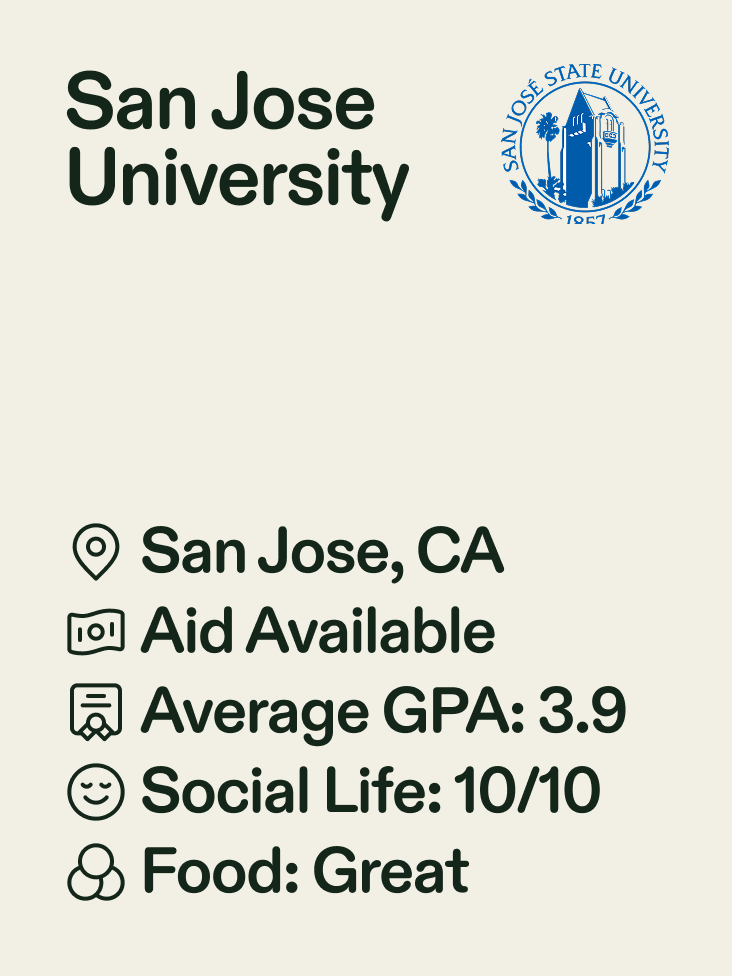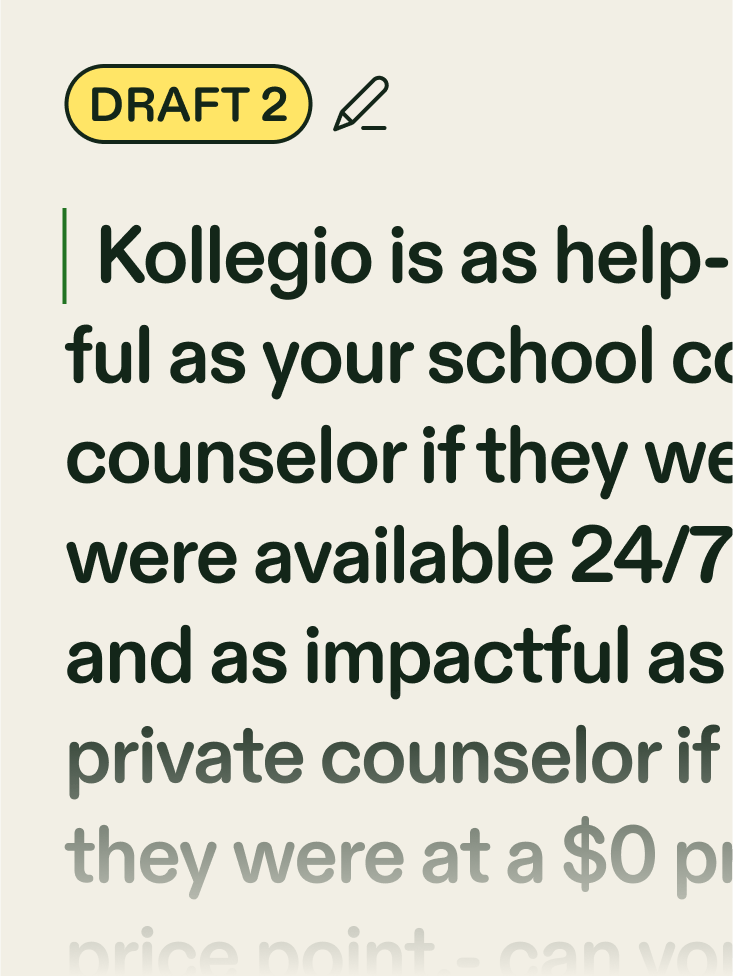
Annabel
Portola High School, CA
College applications can be very stressful but Kollegio has made it much easier! I can see which colleges fit my preferences based on my profile and get detailed feedback for all my essays. Best of all, everything is completely free! Would definitely recommend!







